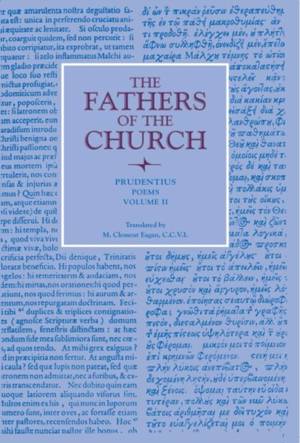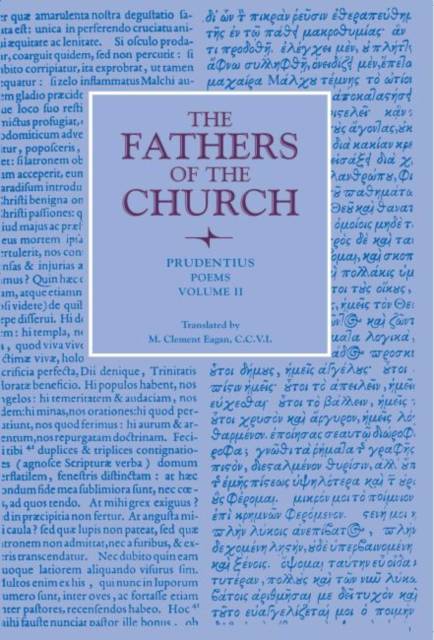
Bedankt voor het vertrouwen het afgelopen jaar! Om jou te bedanken bieden we GRATIS verzending (in België) aan op alles gedurende de hele maand januari.
- Afhalen na 1 uur in een winkel met voorraad
- In januari gratis thuislevering in België
- Ruim aanbod met 7 miljoen producten
Bedankt voor het vertrouwen het afgelopen jaar! Om jou te bedanken bieden we GRATIS verzending (in België) aan op alles gedurende de hele maand januari.
- Afhalen na 1 uur in een winkel met voorraad
- In januari gratis thuislevering in België
- Ruim aanbod met 7 miljoen producten
Zoeken
€ 72,95
+ 145 punten
Omschrijving
The poems of Aurelius Prudentius appear in two volumes of the present series, i.e., Volume 43 and this volume, 52. It cannot be said that poetry, in a literary sense, truly prospered in Christian surroundings. However, the greatest of the Latin Christian poets was the present author, who was born in any one of the three cities: Tarragona, Saragossa, and Calahorra. Modern scholarship favors Calahorra. Any estimate of Prudentius must include a recognition of certain defects in his works, notably the length and prolixity of his hymns, the crude realism in his descriptions of the torments of the martyrs, the long declamatory speeches, the unreality of his allegory, and his excessive use of alliteration and assonance. Though his writings as a whole cannot be ranked among those of the great poetry in many instances. Prudentius has a technical skill surpassing that of the other Christian Latin poets. He is the creator of the Christian ode and the Christian allegory. He has something of the epic power of Virgil and the lyric beauty and variety of Horace. Prudentius has still greater claims to greatness, however, in the Christian thought and inspiration of his poetry. A recent critic has declared with truth that Prudentius is 'first a Catholic and only in the second place a poet.' His faith is that of the Nicene Creed. In his poetry, Prudentius celebrates the triumph of Christianity over paganism. He saw the Church emerging from its three-hundred-year struggle against the forces if idolatry and heresy, triumphant through its saving doctrine and the blood of its martyrs. He saw the magnificent basilicas, both in Spain and in Rome, rising in the place of the pagan temples. As an historian of Christian thought and culture at the end of the fourth century, Prudentius cannot be overestimated.
Specificaties
Betrokkenen
- Auteur(s):
- Vertaler(s):
- Uitgeverij:
Inhoud
- Aantal bladzijden:
- 240
- Taal:
- Engels
- Reeks:
Eigenschappen
- Productcode (EAN):
- 9780813218724
- Verschijningsdatum:
- 1/01/1965
- Uitvoering:
- Paperback
- Formaat:
- Trade paperback (VS)
- Afmetingen:
- 140 mm x 216 mm
- Gewicht:
- 303 g

Alleen bij Standaard Boekhandel
+ 145 punten op je klantenkaart van Standaard Boekhandel
Beoordelingen
We publiceren alleen reviews die voldoen aan de voorwaarden voor reviews. Bekijk onze voorwaarden voor reviews.









